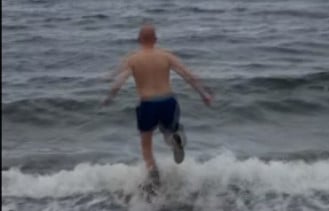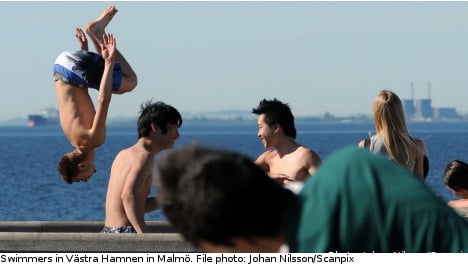BATHING
Norway minister claimed by cold bathing craze
Norway's oil minister has become the first member of the government to be pulled into the chain cold-water bathing craze sweeping Norway.
Published: 2 May 2014 22:44 CEST

Tord Lien running into the sea on May 1. Photo: Adressa.no screen grab
Tord Lien, one of the leading figures in the Progress Party, was nominated for a 'Jump in the Sea' challenge over Facebook by two of his Progress Party colleagues, Ulrikke Holmøy and Geir Kristoffersen.
On May 1, he leapt into the water at Ranheim, a popular bathing spot near Trondheim.
"I have a tendency not to say 'no' when challenged," the minister told the Adressa newspaper. " "It was not hot, either onshore or offshore."
After about 15 seconds in the water, which he estimated was no more than five degrees centigrade, he leapt out and quickly dried himself off and pulled on a jumper.
A cold water-bathing chain craze is sweeping Norway, after arriving from the Faroe Islands just over a week ago.
Those who accept the challenge gain the right to nominate others to themselves leap into the water for a 24 hour period, or pay a penalty which normally involves buying the challenger large quantities of alcohol.
Lien has challenged four state secretaries in the government to follow his lead.
Url copied to clipboard!


 Please whitelist us to continue reading.
Please whitelist us to continue reading.
Member comments